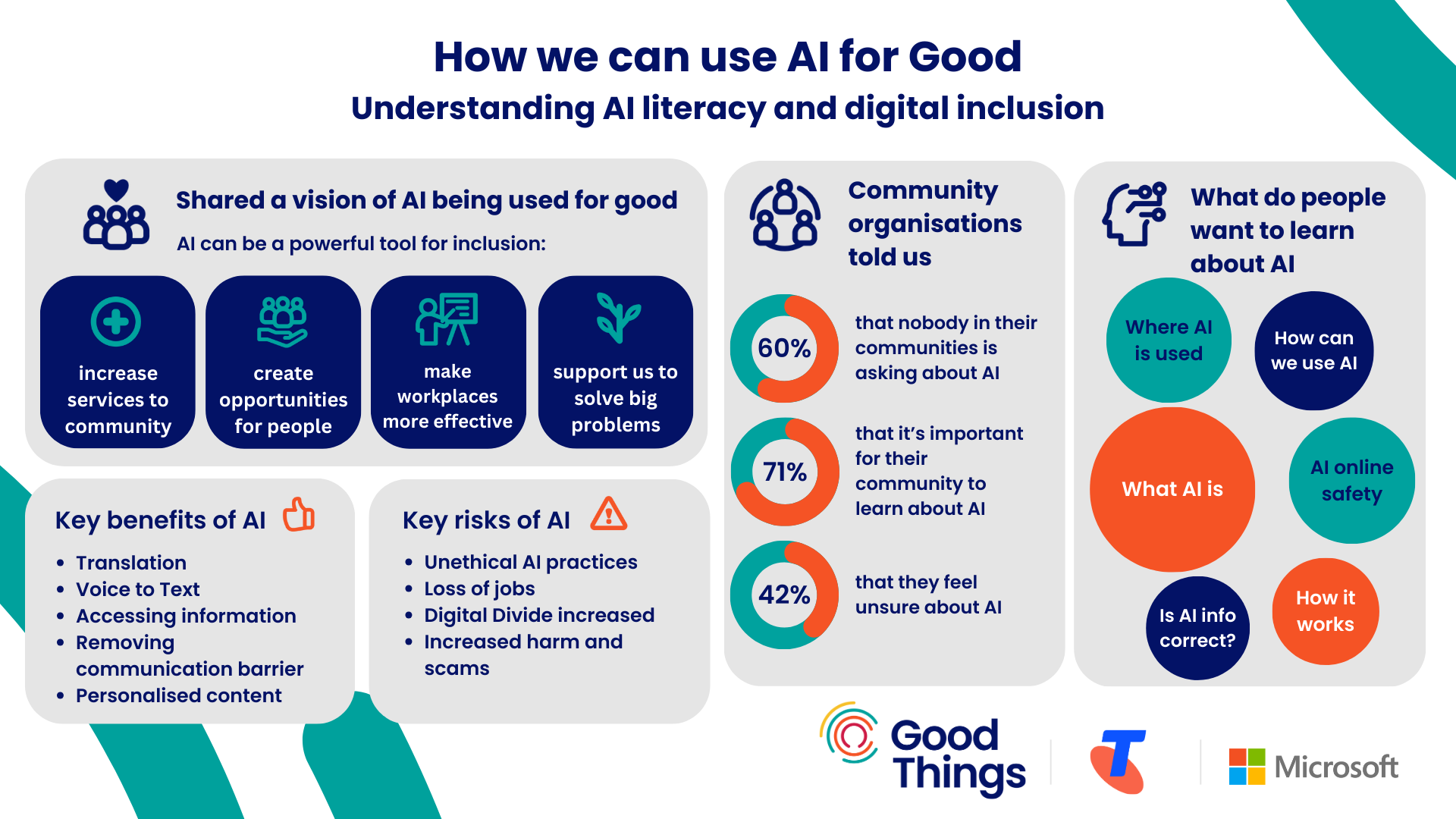Good Things Australia have today released a brand new research report ‘Understanding AI literacy and digital inclusion: How we can use AI for Good’.
The report is the result of significant consultation and research, and is part of the Digital Sisters: AI for Good program supporting refugee and migrant women to build their understanding and use of AI, run by Good Things in collaboration with Microsoft and Telstra.
This research is critical to our mission of closing the digital divide so no one is left behind. The Digital Sisters: AI for Good initiative includes creating inclusive learning materials and supporting 20 network partners and their Digital Mentors to support hundreds of women in their community to keep up with emerging technology.
To be able to deliver this AI literacy support with relevant learning resources and support materials, we first needed to better understand AI, AI literacy and the intersection between AI literacy and digital inclusion. We also needed to comprehend current levels of understanding and confidence using emerging technology, what people want to learn about AI, and the main formats and platforms they prefer to use.
The Good Things team conducted the research leading to this report in late 2023 and the first half of 2024. Research included surveying our network of community partners and consultations involving over 56 organisations and individuals from various sectors, such as government, academia, technology and social impact sectors. Women who will be learning about AI literacy as participants in our Digital Sisters program were also engaged to hear their first hand perspectives.
Our insights were further refined during a cross-sector roundtable held in early May, bringing together representatives from these varying stakeholders.
Some of the key findings from the ‘Understanding AI literacy and digital inclusion: How we can use AI for good’ report include:

Shared a vision of AI being used for good.
AI can be a powerful tool for inclusion:
Key benefits of AI:
Key risks of AI:
Community organisations told us:
What do people want to learn about AI:
Read the media release about the report launch and partnership with Telstra and Microsoft to support refugee and migrant women feeling safer and confident using new AI technologies.
We have a four-page report snapshot you can download to check the main findings and report details. Download the report snapshot
You can also read and download the full report to learn about the consultation process, findings, recommendations, and more. Download the full report
The consultation process was the first phase of the Digital Sisters AI for Good program.
With insights from our research, we have started working on different resources to be used for our 20 partner organisations taking part in the Digital Sisters AI for Good program and to be shared with our broader network of community organisations around Australia.
We have also started the Digital Mentors training so 40 mentors are now ready to start supporting women in their communities, using our resources and others that we have been collecting for them.
Check out some of the Digital Sisters AI for good resources.
The AI for Good program is part of our Digital Sisters programs to support women who are migrants or refugees, in feeling more confident and safer online. Read more about our other Digital Sisters programs.
Keep in the loop with news, grant announcements, events and updates in our Good Things newsletter and learn how to get involved in closing the digital divide.